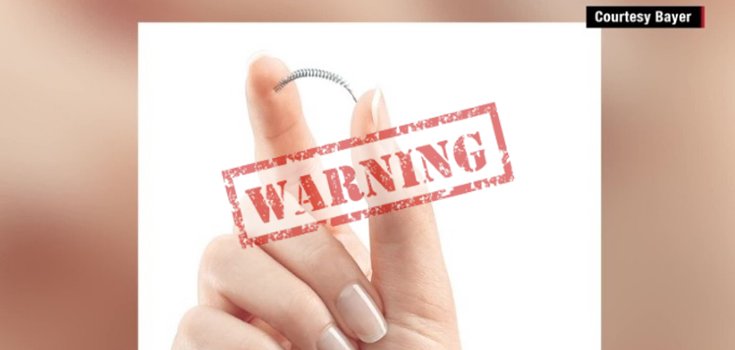The FDA Just Failed Women Hurt by Controversial Contraceptive Device

The Food and Drug Administration (FDA) announced Monday that it would place a “black box” warning on a controversial contraceptive device, but stopped short of banning it.
It was touted as a safe, non-invasive form of birth control that allowed women to simply go about their lives, not having to worry about missed pills or getting an injection. But over the past several years, thousands of complaints have flooded into the Food and Drug Administration (FDA) concerning painful and sometimes irreversible complications caused by Essure.
On its website, the FDA says that reports of adverse events received by the agency include persistent pain, perforation of the uterus and/or fallopian tubes, internal abdominal bleeding, abnormal and irregular bleeding, allergy or hypersensitivity reactions, and the Essure device can migrate outside of the fallopian tubes and become lodged in other parts of the body, namely the uterus.
When the device migrates, unintended pregnancies can occur. Ectopic pregnancy is also a very real risk with Essure.
From November 2002 to May 2015, more than 5,000 women filed grievances with the FDA.
The Essure label warns of pelvic pain and bleeding immediately after implantation, but many women say their problems persisted much longer and, in some cases, required surgery to remove the device.
But recently, the FDA rejected calls from injured women to pull Essure from the market, as many women have pleaded with the agency to do. Instead, health officials say it will require Bayer AG to conduct a new round of safety studies on the device. The agency also recommended a “black box” warning – its strongest warning – about Essure’s potential for serious side effects, plus a risks checklist for doctors to discuss with patients. [1]
In a statement, William Maisel, chief scientist at FDA’s Center for Devices and Radiological Health, said:
“The actions we are taking today will encourage important conversations between women and their doctors to help patients make more informed decisions about whether or not Essure is right for them. They also reflect our recognition that more rigorous research is needed to better understand if certain women are at heightened risk of complications.” [2]
The FDA called Essure “an appropriate option for the majority of women” but that “some women may be at risk for serious complications.” [3]
The news of the FDA’s refusal to recall Essure was heartbreaking and frustrating news to many women who have been injured by the device, including the Facebook support group Essure Problems.
In a statement, the group said:
“We are outraged that it appears as if the FDA is going to leave Essure on the market. Take the device OFF the market and revoke PMA [premarket approval]. Do not continue to allow more women to be harmed.
“These studies could take several years, and leaving the device on the market will only put more women’s lives at risk. We are disappointed but not surprised the FDA has once again chosen to side with industry rather than protect patients of a failed medical device.”
Rep. Mike Fitzpatrick, a Republican from Pennsylvania, who had been pressuring the FDA to revoke PMA for Essure, also expressed anger and disbelief:
“It’s unbelievable that it took the FDA since September to make just two recommendations with no enforcement measures and ask the manufacturer to perform another study while leaving Essure on the market. It’s been done. The evidence is all there: Tens of thousands of injured women and hundreds of fetal deaths.”
Last week, Fitzpatrick and Madris Tomes, a former FDA contractor whose business, Device Events, analyzes FDA public data, presented the FDA with raw data showing a total of 303 fetal deaths among women who used Essure. Said Tomes:
“I actually think the 303 number is conservative, because some of these women have had multiple miscarriages, they’ve had multiple pregnancies, after confirmation, but I only counted them once.”
Fitzpatrick says Congress must act to take the dangerous contraceptive device off the market, since the FDA won’t. He said he would present a number of legislative actions to the House and Senate, including working to block government agencies, including the U.S. Department of Veterans Affairs, from purchasing the Essure; introducing new legislation that would remove “blanket civil liability protections” that block women from suing Bayer AG for their injuries; and working to pass an act that would revoke Essure’s FDA approval.
Sources:
[1] CNN
[3] NBC News

Get it through your heads, people. The government does not work for the people.